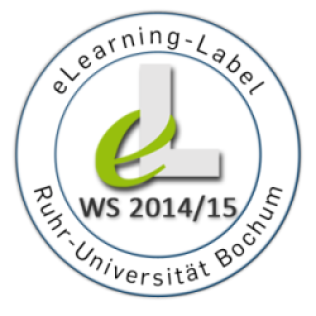The Molecular Bioenergetics project team is involved in the education of students of biology and biochemistry as part of the
teaching programm
of the Chair of Biophysics.
Specific arrangements:
Specific arrangements:
Light-driven energy conversion of halobacteria (practical). Microbial physiology and energetics (lecture)
Biochemical and biophysical expercises for students of Biology:
Thermodynamics and electrochemical energy conversion (practical).
G-Block molecular biophysics (basic level) for students of Biology and of Biochemistry
Thermodynamics and electrochemical energy conversion (practical).
-
Thermodynamics of biological reactions and chemical reaction kinetics (lectures).
-
Structure and function of light- and redox-driven proton pumps (lectures).
-
Practical courses in:
Function of the light-driven proton pump bacteriorhodopsin in intact cells.
Isolation and functional proteoliposome reconstitution of bacteriorhodopsin and cytochrome oxidase.
Redox spectroscopy of cytochromes and the proton pump cytochrome oxidase.
S-Block molecular biophysics (advanced level) for students of Biology and of Biochemistry:
Objects are closely related to the present research activies of the Molecular Bioenergetics project team; they include:
-
Site-directed mutagenesis of the gene encoding the catalytic subunit of cytochrome oxidase (gene technological working techniques).
-
Growth of microorganisms and preparative isolation of cytoplasmic membranes (wild-type and mutants).
-
Biochemical purification of cytochrome oxidases.
-
Electrophoretic and functional characterization of the preparations, optical spectroscopy.
-
Functional liposome reconstitution of wild-type and mutant cytochrome oxidase.
-
Biophysical characterization of the oxidases by measurement of ligand binding and redox spectroscopy (FTIR-spectroscopy).
We offer laboratory practicals (
"Vertiefung I"
) for students of biochemistry as well as advanced laboratory practicals ("Vertiefung II").
We also offer a practical course in advanced biophysics for students of biochemistry, who have chosen this as a "voluntary subject" for their diploma examination.
Computer Methods for the Analysis of Genes and Protein Structure
In the summer term 2003 we organised the course "Computer Methods for the Analysis of Genes and Protein Structure", which comprises a part of the teaching programme of the European
Graduate College 795
of the DFG (Deutsche Forschungsgemeinschaft). Similar objectives are conveyed to undergraduates in the lecture/practical series "Physical and Bioinformatic Methods in Biochemistry" for students of biology, biochemistry and chemistry.
This is now continued in the course "Introduction to Bioinformatics" (lectures plus computer practicals) in cooperation with the colleagues Axel Mosig, Raphael Stoll and Steffen Wolf.


